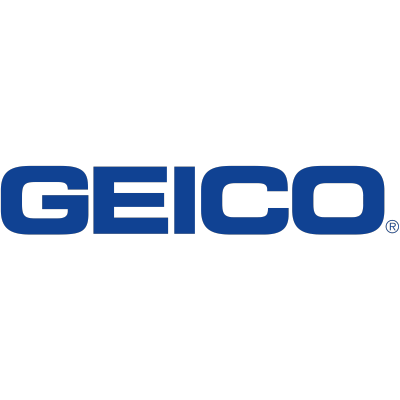One of the benefits of serving your country is the number of companies that want to reward that service through discounts. Some of the best-rated car insurance companies are known for their dedication to providing military members and veterans with low auto insurance rates. Here, we'll cover some of those insurers and help you decide which might be the best options for you.
Best Car Insurance for Military Personnel & Veterans: Our Picks
| Offer | Best For | Next Steps |
|---|---|---|

USAA
|
Great For: Best overall | |

Geico
|
Great For: Best alternative when rate shopping | |

Armed Forces Insurance
|
Great For: Best for personalized service |

At Motley Fool Money, insurers are rated on a scale of one to five stars. We primarily focus on pricing, coverage options, and customer satisfaction; however, we also take into account features like unique discounts, online and app-based experiences, and branch access. Our highest-rated auto insurers generally offer low costs, solid coverage, and high customer satisfaction.
Best overall: USAA

Pros
- Top-rated customer service
- Variety of discounts
- Flexible payment plan
- Access to coverage 24/7
- Easy to use from anywhere in the world
- Financially secure
Cons
- Available only to military members and their families
Why we recommend USAA for military car insurance
The big name in military insurers, USAA has been covering automobiles since 1922, when 25 Army officers joined together to insure each other's vehicles. USAA is known for its low rates and multiple discounts for its members.
Not only does it offer the lowest rates, USAA would be ranked No. 1 in virtually all areas of the U.S. in J.D. Power's customer service rankings. Because it doesn't meet its award criteria, J.D. Power gives USAA a score but does not include it in the rankings In addition, Moody's gives USAA a financial strength rating of AAA and AM Best gives USAA an A++ rating, which means it is in a superior position to pay out claims to customers.
To be eligible for USAA auto insurance, a customer must:
- Currently serve in the Army, U.S. Air Force, Coast Guard, Marines, Navy, National Guard, or Reserves
- Be retired or honorably discharged from the military
- Be the current spouse, widow, widower, or unremarried former spouse of a USAA member
- Be the child of a USAA member
- Be a cadet or midshipman at a U.S service academy, affiliated preparatory school, an officer candidate within 24 months of commission, in advanced ROTC, or on an ROTC scholarship
Best alternative when rate shopping: Geico

Pros
- Nationwide coverage
- Affordable premiums
- Easy application process
- Ample discounts
Cons
- Fewer in-person agents than some competitors
- Mixed reviews on J.D. Power Customer Satisfaction ratings
- Above average number of complaints with the National Association of Insurance Commissioners
Why we recommend Geico for military car insurance
Geico is a close competitor to USAA. Both companies provide rates well below the national average cost of military auto insurance to veterans and their families. In fact, Geico offers a military discount of up to 15%. Geico is not only a less-expensive option than most, its customer service routinely ranks among the best with J.D. Power. Tech-lovers will appreciate how intuitive the Geico website and mobile app are and how quickly the company responds to customers.
Best for personalized service: Armed Forces Insurance

Pros
- Personal insurance agent for each customer
- Flexible options to protect customers' property and budget
- Special benefits for those with PTSD
Cons
- Only available to military members and their families
- Not many physical branches
Why we recommend Armed Forces Insurance for military car insurance
Armed Forces Insurance (AFI) was founded in 1887 -- 22 years after the end of the Civil War and 27 years before the beginning of the first World War. At the time of its founding, gasoline-injected carburetors had just been patented, giving AFI time to establish itself as a competitively priced property and casualty insurance company before branching into auto coverage.
AFI's customers have a personal insurance agent dedicated to them. Every call is answered by a live person, not sent to an automated answering service. AFI compares options through its partnerships with top-rated national carriers to find the best deal for their customers. While eligibility criteria to join AFI is similar to that of USAA, its benefits include:
- PTSD card: AFI provides members who have post-traumatic stress disorder (PTSD) a card to carry with them and hand to someone when their PTSD is triggered. For example, a veteran might be at a sporting event and startled by unexpected fireworks or low-flying jets. If the sounds or sights trigger that veteran's PTSD, they may not be in any condition to explain their discomfort. Instead, they can hand the card to someone nearby, who will hopefully help. PTSD can strike any time, including on an airplane, when stopped by the police, or smelling an aroma that transports their mind to another, more frightening place. Knowing that they have a card that explains their situation may offer a bit of comfort.
- Fraud protection: AFI members receive free fraud advocacy services. While fraud protection is good for people of any age, it can be particularly beneficial as aging retirees find themselves in new situations.
To be eligible to join AFI, an individual must be:
- Active duty, retired, or honorably discharged from the military
- An active or retired Department of Defense civilian employee
- A Merchant Marine or ROTC cadet
- The child of a current or former member of AFI
- The spouse, widow, or widower of an active duty, retired, or honorably discharged member of the military
- An active, retired, or former NOAA or PHS commissioned officer
- The former spouse of an AFI member
What is the best military car insurance company?
Overall, the best car insurance for military members comes from USAA, a company that caters to military members and their families. Not only are the rates lowest across the board, but USAA has some of the highest customer satisfaction ratings in the business.
While most customers rave about USAA, the insurer that works best for someone may be different, depending on things like whether they're deployed or if they're retired. Several top-name auto insurers offer a military discount -- including Liberty Mutual and Farmers -- but here are our top three picks.
What car insurance companies give military discounts?
Here's a list of companies we've found currently offering special discounts to members of the military:
- USAA
- Geico
- Esurance
- Liberty Mutual
- Farmers
- Armed Forces Insurance
Find the cheapest, best car insurance for military members and families
Like most things in life, there is no one-size-fits-all solution. The cheapest, best insurance company depends on things like whether a person is deployed. If that's the case, it may be best to go with a company like Esurance that allows people to cancel their insurance without penalty while someone is gone. If someone returns from active duty and suffers from PTSD, they may be most comfortable dealing with AFI, an insurance company that recognizes and addresses these unique challenges. Retirees may also find that they can save money by going with AFI because they don't have to pay separately for fraud protection.
The average cost of car insurance depends on what's going on in a person's life. Maybe someone has a teen driver in the family and is worried about their auto insurance coverage. Some people want to bundle car insurance with homeowners insurance and life insurance for a deeper discount. Others may be looking for a tech-savvy insurance provider that lets people file claims from their smartphone. And some folks prefer a company that offers special military member premiums in addition to other car insurance discounts. No matter what you're looking for, it pays to shop around. Car insurance rates depend on people's specific circumstances, and benefits vary by insurer.
The good news is this: You now know of at least six insurers that offer car insurance discounts and superior service to military members and their families. The most affordable car insurance is the one that provides enough coverage to make people feel secure -- and at a cost they can easily work into their budget.
RELATED: See Motley Fool Money's guide to the best budgeting apps.
FAQs
-
USAA offers the cheapest car insurance rates for veterans.
-
Yes, with companies like USAA, Geico, Esurance, Farmers, Liberty Mutual, and Armed Forces Insurance, veterans can get a discount on their car insurance.
-
No, military members pay to insure their private vehicles.
-
With most companies, military members must pay their premiums even while deployed (although they may be discounted) to avoid a coverage gap. Esurance, though, allows military members to cancel and reinstate their policy with no penalty when they're deployed.
-
Options include with friends or family members, on-base parking, or in a specialty car storage unit.
Auto Insurance Ratings Methodology
The data found on this page is a combination of publicly available quote data obtained directly from the carrier as well as insurance rate data from Quadrant Information Services. These rates were publicly sourced from the top ten (10) to fifteen (15) carrier markets, within each state, based on annual written premium and should be used for comparative purposes only -- your own quotes may be different.
The base vehicle used for benchmarking purposes is a 2019 Honda Civic averaging 14k miles driven per year.
The base driver persona is a 35 year old single male that has served in the military with a clean driving record that uses their vehicle for personal commuting with coverage limits set to the following: (unless otherwise noted)
- Coverage: $50,000 per person / $100,000 per accident /$25,000 property damage
- Deductible: Comprehensive with $500 deductible / Collision with $500 deductible
- Other: No uninsured or underinsured coverage
Insurance products are then rated on a scale of one to five stars, primarily focusing on:
Pricing
With so many options for insurance across the board these days, it's easiest, and quite effective, to first look at the bottom line. Do single out competitive prices across insurance categories it's important to focus on:
- Deductibles
- Terms
- Coverage
- The fine print
Discounts
Insurance provides coverage for unexpected financial burdens and piece of mind. But it's important to check your policies and see how you can lower your premium. Insurance companies offer discounts for all sorts of things now from safe driving to good grades to automatic bill pay. Pay attention to:
- Discounts offered
- Variety of discounts
- Discount qualifications
Perks/Benefits
The benefits of insurance these days have gone far beyond just what your policy covers. Most companies and policies come with perks -- some of which may be completely unrelated to your insurance policy. Take a look at:
- Non-pricing related perks offered
- Benefits unrelated to your coverage
- Perks that stand out in the industry
- Will you actually use the benefit?
Customer Service/Claims Process
Policy research and coverage options are great, but how is the process when you have to actually use your insurance policy? The best coverage doesn't hold much value if it's a hassle to get paid out. Pay special attention to:
- How hard it is to file a claim
- If your provider has a history of resisting payouts
- The customer satisfaction scores for your provider
We're firm believers in the Golden Rule, which is why editorial opinions are ours alone and have not been previously reviewed, approved, or endorsed by included advertisers. Motley Fool Money does not cover all offers on the market. Motley Fool Money is 100% owned and operated by The Motley Fool. Our knowledgeable team of personal finance editors and analysts are employed by The Motley Fool and held to the same set of publishing standards and editorial integrity while maintaining professional separation from the analysts and editors on other Motley Fool brands. Terms may apply to offers listed on this page.